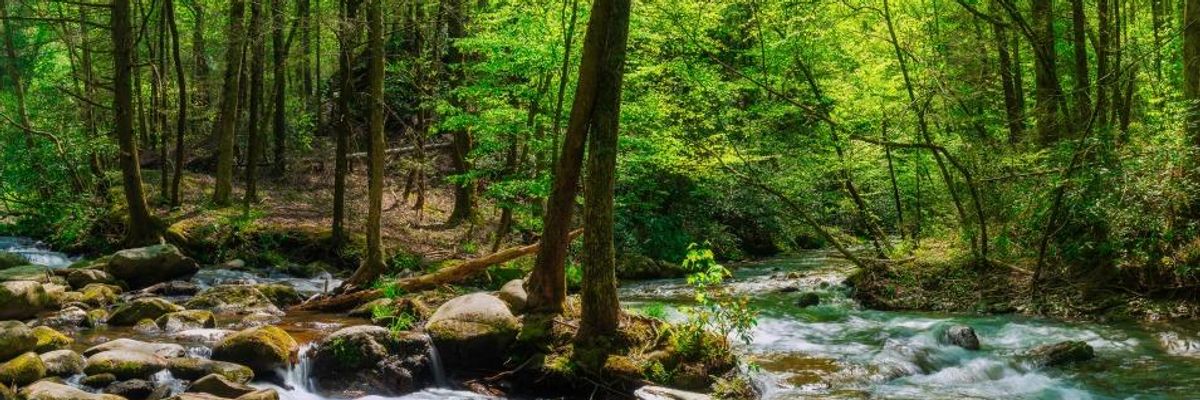In 2008, my husband and I spent a week at 9,000 feet, hiking between yurts in Colorado's Never Summer wilderness area. The pine beetle infestation had begun to ravage the lodgepole pines that layered the mountainsides, reducing acre after acre of tree life to acre after acre of board feet that bore the scars of congested cellulose veins. When I described the landscape as decimated, my husband delivered an object lesson on why "decimate" was an inaccurate description of what was before us. It wasn't 1/10th of the tree population that had been killed by the fungus-carrying beetles, but 90%. The mountainsides were more brown than green, more pellet-mill than forest. It felt like we were hiking in a sepia postcard through a landscape leached of color and life.
A recent profusion of studies hails the importance of spending time in nature. Contact with the natural world reduces stress, expands a sense of wellbeing, increases social cohesion, and may even extend life. Doctors have begun to prescribe "the nature pill:" 20 minutes outside, communing with nature. So beneficial is exposure to the natural world that a new global movement has arisen to declare access to nature a human right.
But the natural world assumed in these studies is not nature damaged. It is not the ghost forests poisoned by rising salt water along the southeastern coast. It is not the bone-dry canyons of the southwest or the oil-soaked coastline of Santa Barbara County. And it is not the devastated forests of Rocky Mountain National Park. It is nature beautiful, a place of sensual delight and life abundant.
It is baffling, then, that the importance of beauty to our experiences in nature is hardly ever mentioned. Researchers talk about biodiversity, healthy ecosystems, green spaces, and open spaces. Beauty goes unmentioned. The very attribute that draws us out into the natural world, away from the security of our houses and technology's addictive grip, is given the silent treatment by a culture trained to think of beauty as irrelevant, private, and unimportant.
But I know of no studies designed to measure the effect of time spent in pitted, ruined nature, no research that assumes that outdoor time will be whiled away in industrial parks or on neglected playgrounds. The affiliation between nature and beauty is taken for granted.
It is important to make the connection between beauty and nature obvious and to name beauty as the quality in nature we so desire. If we don't, we continue allegiance to the very paradigm that has been so destructive of the human-nature relations, the paradigm that erased value from the natural world and made beauty nothing more than a subjective opinion. And we play into the hands of that same human-centered mentality that regards nature solely as an instrument for human wellbeing.
The natural world is not an indeterminate backdrop for human experience, a neutral canvass waiting to take on value only after the human wand of worth has waved over it. It is an astounding profusion of life-relations, each with its own value. And beauty is the value most closely associated with relations that enhance life. Its obverse is ugliness, a word derived from the Old Norse word, "ugga," to dread. Etymologically, there is a direct line between ugliness and dread, dread and violence. Ugliness is allied to life blunted or reduced. Beauty is consort to life flourishing and abundant. To be immersed in nature is to feel its worth and be enlivened by it.
When we substitute terms like "nature exposure" and "natural restorative environments" for what we experience as nature's beauty, we unintentionally make ourselves complicit in the devaluing of the world. To admit to the beauty of the natural world is to resist the modern habit of disregard for nature's value. We know the power of language to shape culture and to reinforce cultural values. It is time to talk openly about the importance of beauty as the value that pervades life and as the value that increases human wellbeing.
It is not just time in nature that we need. We need time in the beauty of the natural world.



